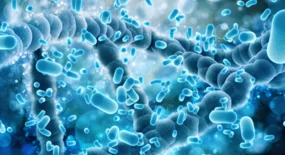Disclaimer: The Views/Opinions expressed and/or opinions provided in Videos and other content on MedEnrich Website are those of respective speakers. They do not purport to reflect the opinion or views of Dr.Reddy’s Laboratories Limited or its affiliates (collectively Dr.Reddy’s)in any manner whatsoever and accordingly ,Dr.Reddys does not recommend , endorse or make any representation about the veracity and appropriateness of the views ,opinions/ information on MedEnrich website. Content on MedEnrich website may discuss uses and dosage for therapeutic product that may not have been approved in by the relevant regulatory agencies in your country. Dr.Reddy’s does not support , endorse or encourage any off-label use. Please refer to approved label before prescribing.
Content
Breast Cancer
11m 28s
ESR1 Mutation in Hormone Receptor Positive Advanced Breast Cancer
Published 20 Jul 2022
ESR1 mutation leads to ligand independent activation of estrogen receptor. ESR1 mutations were first described in 1997 & their role remain underestimated as initial research was focused on primary tumor wherein these mutations were absent. Eventually researchers found higher prevalence of ESR1 mutations in patients treated with multiple lines of endocrine therapy for metastatic breast cancer. In Brazil ESR 1 mutations are found in 14% patients with hormone resistant Breast Cancer. Patients treated with Aromatase inhibitors in metastatic setting are more likely to develop ESR1 mutations. ESR1 mutations do not impact on benefit of Fulvestrant & Fulvestrant can be considered for patients with ESR1 mutation. Benefit of CDK4/6 inhibitors is independent of ESR1 mutation. Recent PADA clinical trial evaluated switching treatment to Fulvestrant on emergence of ESR1 mutation as partner with CDK4/6 inhibitor instead of Aromatase Inhibitor has found to increase PFS. ESR1 mutations have clear role as potential therapeutic target for Fulvestrant & next generations SERDs.






